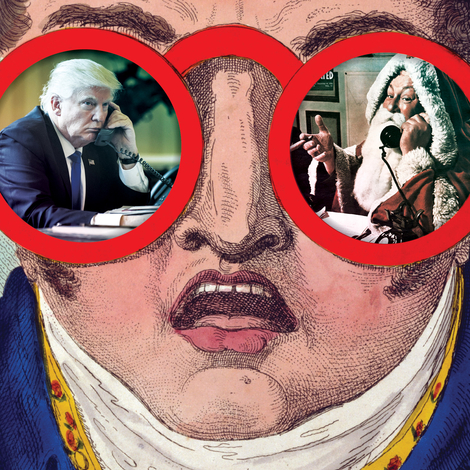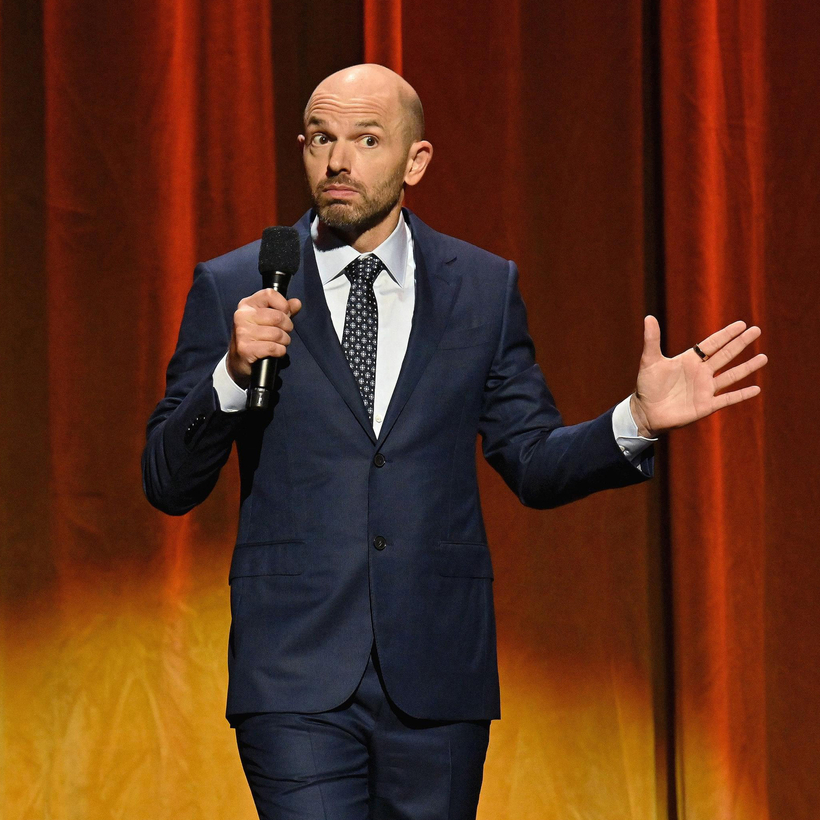There’s a tendency to think child abuse happens only behind closed doors, hidden by deception or manipulation. Otherwise, surely, someone would put a stop to it. But what comedian Paul Scheer endured wasn’t secret. It was out in the open.
When he was three, his parents divorced. Then along came Hunter, his mother’s violent second husband. Hunter threatened Scheer’s life so many times––with his fists, with a pitchfork––that Scheer doesn’t remember when the abuse began. Hunter often told Scheer that if he didn’t put away his clothes or wash the dishes, he’d be sent to jail, where he’d be raped. He was eight. Growing up on Long Island, Sheer eventually started fighting bullies at school, pummeling them with the same intensity he received at home.
“When I think about my parents and where they may have failed me, I think about how there was a family therapist whose job it was to be on the front lines helping, who knew all the intricate details,” Scheer tells me. “There was Child Protective Services, who came to our house and didn’t do anything.”

Scheer, now 48 and known for his work in comedies such as Fresh Off the Boat and The League, details his years of abuse and the ways it was overlooked in his new memoir, Joyful Recollections of Trauma. During one early-childhood family-therapy session, a counselor threatened to call the police on Hunter if he beat Scheer or Scheer’s mother one more time. One more time came and went, and Hunter was simply issued another warning. Scheer’s maternal grandmother stormed out after a particularly nasty oral fight during Christmas dinner, declaring she couldn’t stand to see her daughter and grandson mistreated. At a second-grade birthday party, Hunter, in front of all the parents and children, laid Scheer over his lap and whipped his backside with a belt.
“How could I expect my parents to have tools greater than what they had?” asks Scheer. “I see that my parents loved me, and wanted to protect me, but they didn’t know how. It doesn’t make it fine. But it helps me contextualize it.”
We discussed his memoir one week before the press tour started. Our conversation included a brief intermission for him to get a haircut. “I’m a bald man, but I do have to keep it in shape if I’m doing all this press,” he says. “I’m trying to make myself look presentable.”
“How could I expect my parents to have tools greater than what they had?”
There’s a peculiar alchemy to writing about childhood abuse. An adult mind must travel through murky memories and unreliable narrators to recall old miseries and recapture experiences that once felt like an annihilation. The problem is that the trauma, like the child, doesn’t exist anymore. What’s left are scraps of images, feelings, and smells. A writer must mold the leftovers into something digestible, something people might want to read.
In his book, Scheer winds through hell. The writing is funny, even though the subject matter is not. “There have been points in my life where I didn’t think I was ready to talk about all of it, or to talk about it in the way that I wanted to, without anger,” he says. “There was a period of time where I was like, If I saw Hunter … I don’t carry that anymore. Now I understand how to reckon with it.”
Scheer is married to June Diane Raphael, a drop-dead funny actress, writer, and comedian. They have two young sons. In one of Joyful Recollections of Trauma’s most poignant passages, Scheer imagines his children coming to him to talk about being abused, the same way he once went to his biological father. He considers how he’d react as a dad if he heard his sons relay the same horrors. “I wouldn’t just do something. I’d do everything.”

So far, his sons have only sought garden-variety comforts. “A couple of weeks ago, my oldest, who’s 10, said, ‘Dad, can I talk to you for a second? Can we sit in the living room? I want to talk to you privately.’ I’m thinking, All right, O.K., here we go,” recalls Scheer.
“We go and sit in the living room, and he takes a deep breath and says, ‘Dad, do you know about the Holocaust?’ I said, ‘Yes, I do.’ And he said, ‘O.K. All right. Because, you know, it was pretty terrible.’ He was breaking the news about the Holocaust to me. Just like, ‘I gotta talk to my dad about this right now.’”
Scheer is emphatic about his love for his mother and biological father, both of whom are still alive. The book isn’t meant to settle any scores. “What I’ve been learning to do over the course of many years is to take that child [I was] and put him behind me, so that I can stand in front. That child is not capable of being the forward-facing person in the world. But I am.”
Caira Conner is a New York–based writer

